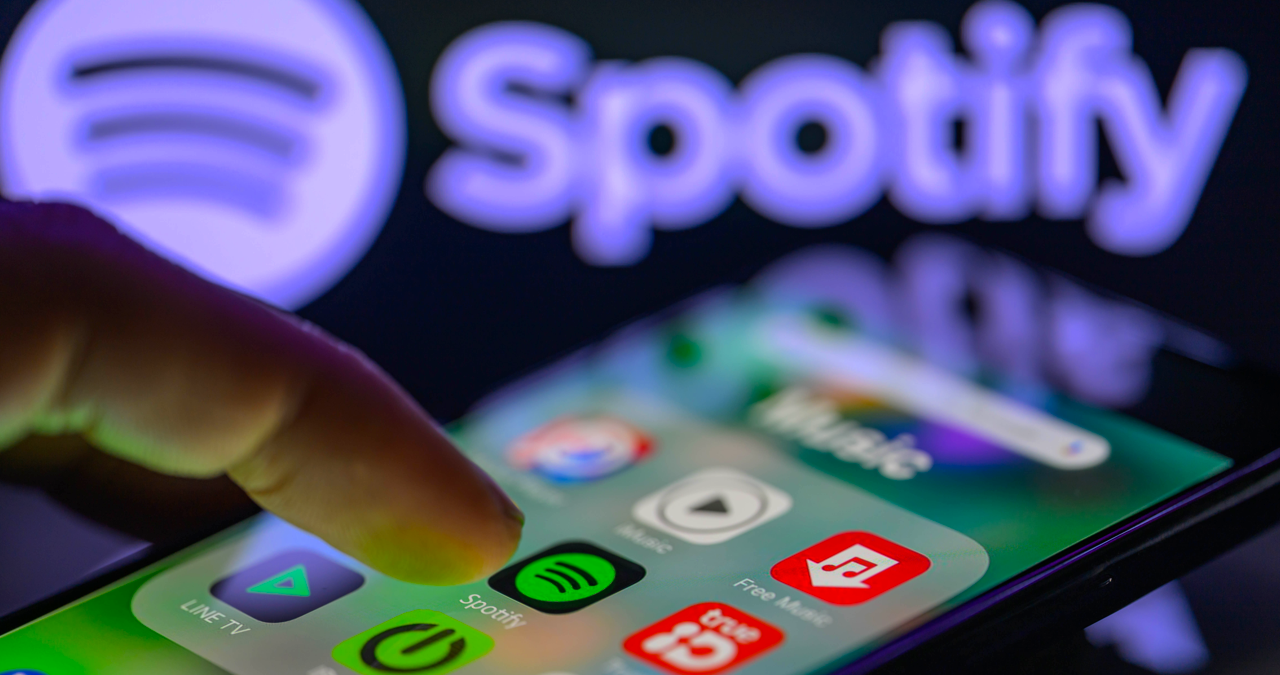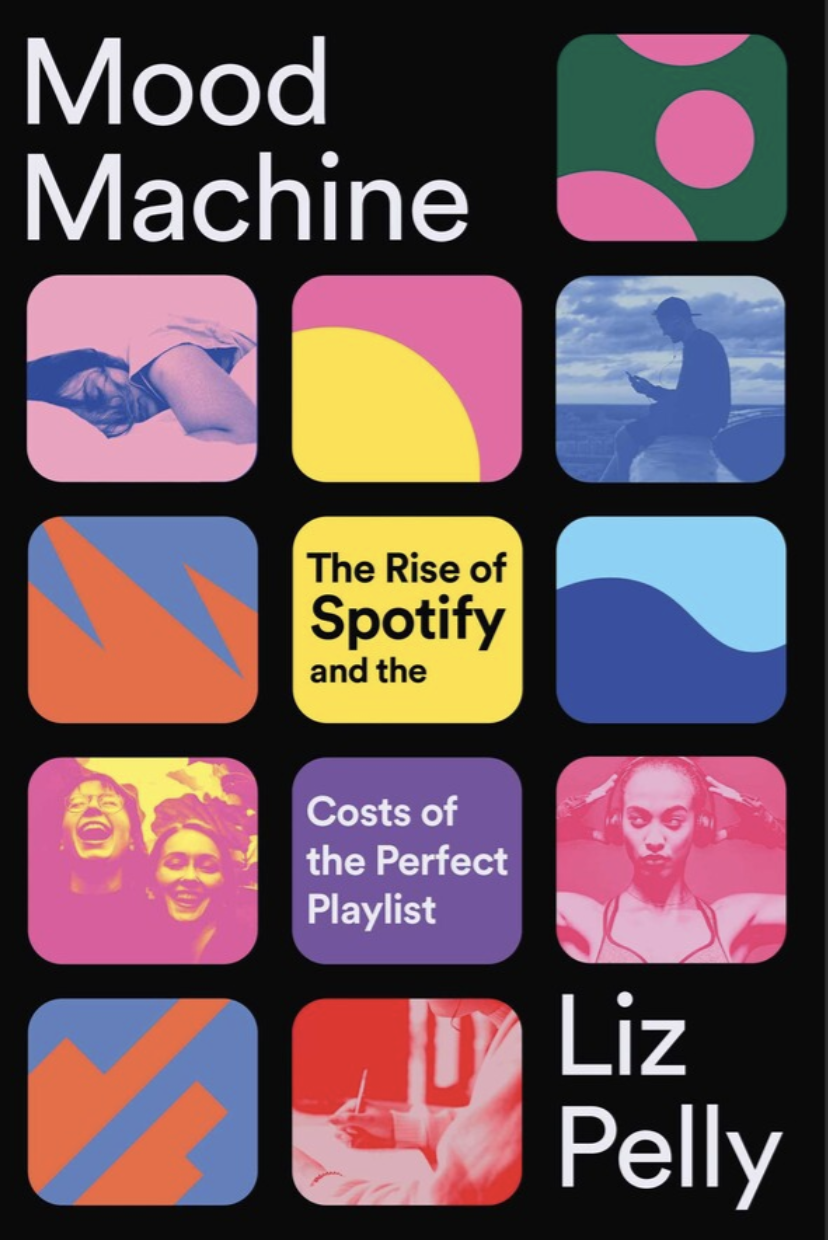
In the modern music landscape, getting your track placed on an editorial playlist, curated by a streaming platform's in-house team can be all that is required to send it (and you) into the big leagues. Or so the theory goes. This 2020s equivalent of getting playlisted on the radio is now such a hot ticket that several paid services offer cleaner, fast-tracked routes in to the inboxes of said curators.
These genre-aligned playlists then, are - or so we've been led to believe - carefully assembled by expert listeners and sequenced for our listening pleasure.
But, as journalist Liz Pelly, has revealed, the biggest streaming platform on the market might have been supplanting real artists with craftily assembled 'fake' artists in an effort to reduce royalty payments to bona-fide music-makers.
In a lengthy extract from her new book, 'Mood Machine: The Rise of Spotify and the Costs of the Perfect Playlist', published in Harper's Magazine, Liz details that she first heard of this worrying shift away from real human artists way back in 2017.
As she recalls, "Spotify, the rumour had it, was filling its most popular playlists with stock music attributed to pseudonymous musicians - variously called ghost or fake artists - presumably in an effort to reduce its royalty payouts. Some even speculated that Spotify might be making the tracks itself. At a time when playlists created by the company were becoming crucial sources of revenue for independent artists and labels, this was a troubling allegation."

Pell explains how subsequent journalistic pressure over the following years provoked Spotify to speak out against the allegations; "A Spotify spokesperson, in turn, told the music press that these reports were 'categorically untrue, full stop': the company was not creating its own fake-artist tracks. But while Spotify may not have created them, it stopped short of denying that it had added them to its playlists," states Pell.
In 2022. Swedish newspaper Dagens Nyheter did some research of its own into the worrying world of 'fake' artist playlist-stuffing, and uncovered some truly astonishing statistics; when comparing streaming data alongside data compiled via Swedish copyright collections society STIM, it indicated that just 20 songwriters were behind the work of more than 500 artists - and thousands of their tracks had been streamed millions of times.
Said artists, Liz Pell's book says, had been given obviously fake bios, to disguise the fact that they were fabricated. Pell then spent the next year devoting herself to uncovering the truth.
"For more than a year, I devoted myself to answering these questions," writes Pell. "I spoke with former employees, reviewed internal Spotify records and company Slack messages, and interviewed and corresponded with numerous musicians. What I uncovered was an elaborate internal program. Spotify, I discovered, not only has partnerships with a web of production companies, which, as one former employee put it, provide Spotify with 'music we benefited from financially,' but also a team of employees working to seed these tracks on playlists across the platform." Alarming stuff.

The scheme, Pelly reveals, is defined internally as 'Perfect Fit Content' (PFC). The whole idea is to replace real independent artists with functional music designed to fit a niche, while those writers and artists who might be contracted to make the PFC-music will often abdicate any rights and royalties that, in other circumstances, could bring them a significant income. Either way, it seems that genuine artists draw the short straw in this dynamic.
As Pelly states; "It puts forth an image of a future in which - as streaming services push music further into the background, and normalize anonymous, low-cost playlist filler - the relationship between listener and artist might be severed completely."
In the course of her extensive investigation, Liz Pelly spoke to various former Spotify curators and staff, many of which recalled that the internal pressure to add this type of 'PFC' content grew as the years progressed. "These higher-ups were well versed in the business of major-label hitmaking, but not necessarily in the cultures or histories of genres like jazz, classical, ambient, and lo-fi hip-hop - music that tended to do well on playlists for relaxing, sleeping, or focusing." One source told Pelly. "[the idea was] If the metrics went up, then let’s just keep replacing more and more, because if the user doesn’t notice, then it’s fine.”
The extract is well worth giving your full attention, as Pelly details several other alarming findings from her research into PFC. The extract concludes with a warning about the looming risk of AI, and Spotify's willingness to embrace it potentially fuelling this marginalisation.
Liz Pell's full length book, Mood Machine: The Rise of Spotify and the Costs of the Perfect Playlist will be published in January 2025 by One Signal Publishers, an imprint of Atria Books and can be ordered via Amazon here.







